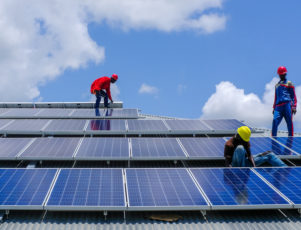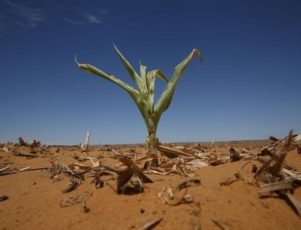As part of the UN’s Sustainable Development Goals, the Climate Aggregation Platform is running a competition for off-grid solar financing in Africa. The results will provide a range of development benefits, especially for remote communities.
New financing models to tackle the lack of electricity for Africa
As part of the UN’s Sustainable Development Goal of universal access to clean, affordable, reliable energy for all by 2030, the United Nations Development Program (UNDP), through the Climate Aggregation Platform (CAP) is running a competition for off-grid solar financing in Africa. Applications have now closed for the first edition of the CAP Financial Innovation Challenge, which will cover East Africa. Aggregate funding projects like this are aimed at countering investment barriers and unlocking new financing for small-scale renewable energy projects, and the increased access to electricity will provide a range of development benefits, from giving farmers access to solar-powered irrigation to health facilities in villages no longer relying solely on diesel generators, to better-lit streets and roads for remote communities.
Aggregate funding reduces risk and encourages investment
Financing solar initiatives in Africa is not without risk or problems, and new sources of funding and new financing mechanisms are required if the necessary investment to meet the Sustainable Development Goal by 2030 is to be reached. In this case, the CAP is using financial aggregation, a process in which multiple energy assets, projects, and companies are compiled into investment portfolios. Investors choose to put money into these portfolios, rather than into specific initiatives.
 This aggregation of projects reduces the risk to investors, as well as the transaction costs of investing in multiple projects, and can help counter investment barriers that would prevent these projects from being financed. A recent report from the UNDP and Climate Bonds has shown that financial aggregation has untapped potential in bringing financing to small-scale clean energy projects. Eduardo Appleyard, CAP project coordinator says, “while the market is still nascent, financial aggregation could one day be a game-changer for distributed renewable energy companies…through this process we want to spark a conversation about financial aggregation grounded in real-life examples to help demonstrate its potential and better understand market barriers and opportunities.”
This aggregation of projects reduces the risk to investors, as well as the transaction costs of investing in multiple projects, and can help counter investment barriers that would prevent these projects from being financed. A recent report from the UNDP and Climate Bonds has shown that financial aggregation has untapped potential in bringing financing to small-scale clean energy projects. Eduardo Appleyard, CAP project coordinator says, “while the market is still nascent, financial aggregation could one day be a game-changer for distributed renewable energy companies…through this process we want to spark a conversation about financial aggregation grounded in real-life examples to help demonstrate its potential and better understand market barriers and opportunities.”
The CAP Financial Innovation Challenge is open to solutions that involve financial aggregation at different levels, such as bundling individual assets, projects, or companies together, and also to other innovative aggregate models, such as carbon credit solutions, renewable energy certificates, innovative models for receivables financing, and digital aggregation platforms.
First initiative to choose five projects across East Africa
The CAP Financial Innovation Challenge will aid in the transfer of hands-on knowledge of solar energy applications that will help overcome energy-related challenges in East African countries. According to the UNDP, off-grid solar and mini-grids are the key to providing reliable electricity to under-served communities without access to electricity and to those that are in regions where the national grid is not reliable.
Off-grid solutions are standalone solar power collection systems operating independently of the main power grid. They are typically sufficient for phone charging and lighting but do not normally provide enough power for larger electricity loads such as powering machinery or agricultural equipment. Mini-grids are larger systems that provide an independent network for communities where the population is too small or remote to make a national grid extension feasible.
The first initiative is exclusively for projects in East Africa, and funding from the Global Environment Facility (GEF) will be given for up to five projects, with at least one project in Rwanda and Uganda each. Each winning company or organization will then receive $40,000 to develop their innovations.
Buy and sell-side actors welcome to enter
The competition was open to both buy-side actors such as banks, impact investors and financial intermediaries, as well as sell-side entities like project originators, developers, and energy companies. The competition was not open to individuals, but was open to almost any groups including governmental agencies, development banks, private sector entities, NGOs, academia, associations, and joint venture applications, in order to encourage maximum participation.
Both first-of-a-kind solutions that have not yet been attempted anywhere before and proven approaches adapted to a new market sector, geography, or context will be considered. Entries were originally to be stopped on the 31st of August 2022, however the deadline was extended to the 9th September.
No dates have yet been given for when the winners will be announced, but should the competition prove successful it is likely that further competitions to win aggregate funding opportunities will open up both on the African Continent and elsewhere in the world.
Photos : undp.org


